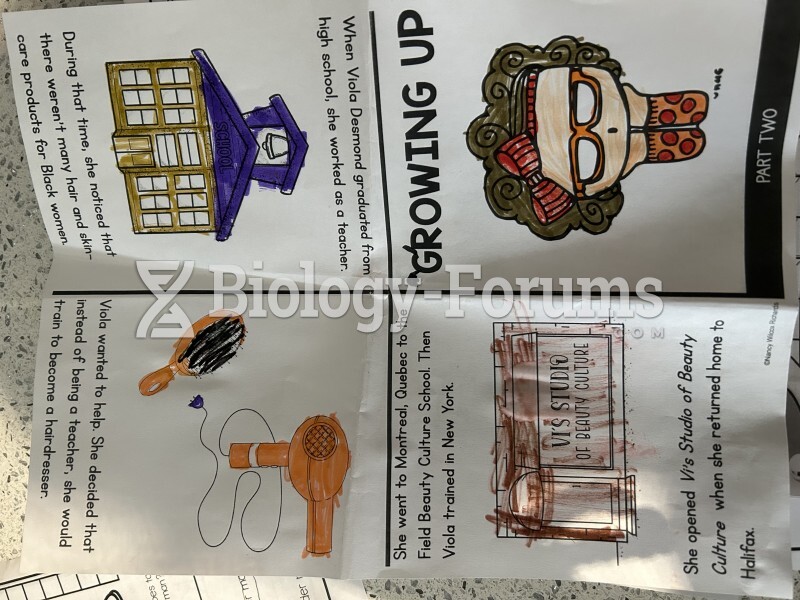|
|
|
Medications that are definitely not safe to take when breastfeeding include radioactive drugs, antimetabolites, some cancer (chemotherapy) agents, bromocriptine, ergotamine, methotrexate, and cyclosporine.
Barbituric acid, the base material of barbiturates, was first synthesized in 1863 by Adolph von Bayer. His company later went on to synthesize aspirin for the first time, and Bayer aspirin is still a popular brand today.
Blood in the urine can be a sign of a kidney stone, glomerulonephritis, or other kidney problems.
There are immediate benefits of chiropractic adjustments that are visible via magnetic resonance imaging (MRI). It shows that spinal manipulation therapy is effective in decreasing pain and increasing the gaps between the vertebrae, reducing pressure that leads to pain.
Essential fatty acids have been shown to be effective against ulcers, asthma, dental cavities, and skin disorders such as acne.
 Crossing over during meiosis leads to allele combinations in sex cells that are not present in the p
Crossing over during meiosis leads to allele combinations in sex cells that are not present in the p
 Men who are at risk for heart disease and report work-related stressors are at greater risk of death ...
Men who are at risk for heart disease and report work-related stressors are at greater risk of death ...





